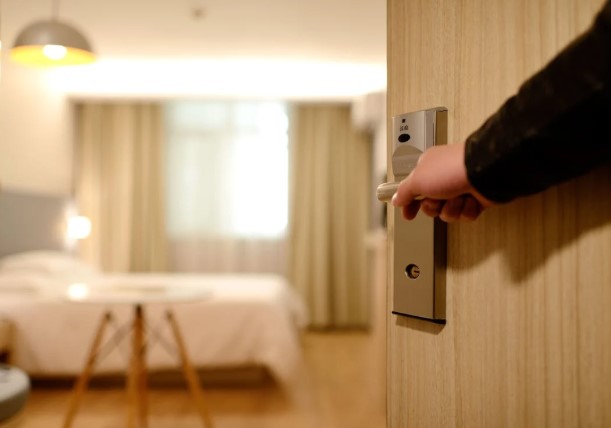
Sometimes life takes you away from home. It could be for a work project in another city, visiting family, or while your own house is being renovated. Short-term accommodation often feels like the perfect solution. It is quick to book, ready to move into, and a change of scenery that can even be exciting.
Safety is usually the last thing on your mind when checking in. You might assume the host has covered all the basics, and the online reviews confirm it is a great place. However, there are many details that guests overlook, and these can make a big difference to how safe you are.
Let us take a closer look at what you might not be noticing. Knowing what to check means you can enjoy your stay with fewer worries and more peace of mind.
Understanding the Basics of Safety
Most travellers rely on location, price, and reviews before booking, but those checks only tell part of the story. A safe stay depends not just on how the property looks but also on how well it protects you.
The concept of site fencing is often associated with construction sites, but it can also play a vital role in securing short-term accommodation. A solid, well-maintained fence or gate can reduce unwanted foot traffic and make a property feel more secure, especially if the building shares space with others or is near a busy street.
Take a few minutes to walk the perimeter when you arrive. Look for broken gates, missing panels, or open pathways that could let strangers wander in. Small things like these can tell you a lot about the host’s overall approach to safety.
The Physical Safety of the Property
Inside the property, the priority is security. Check all entry points, including back doors, sliding doors, and windows. Locks should be sturdy and in working order, not loose or easy to bypass.
Lighting is another quick but vital check. Dark hallways, staircases without overhead lights, and outdoor areas without motion-sensor lighting can create safety hazards and potential hiding spots.
It is also worth looking for trip hazards or poor maintenance. Loose floorboards, frayed carpet edges, and overloaded electrical sockets can turn into problems if ignored. Even something as simple as a blocked fire exit should be taken seriously.
Location and Neighbourhood Awareness
A well-kept property still will not feel safe if the surrounding area is not. Search local news or safety maps for recent crime reports before booking. You can also use street-view maps to get a sense of the neighbourhood’s condition.
Hosts often avoid mentioning nearby construction, late-night businesses, or poorly lit streets that might affect safety. Being aware of these in advance can help you decide if the area suits you.
Where possible, speak to neighbours or shop owners nearby. First-hand accounts are often more honest than the property description and can highlight things you would not have known otherwise.
Hidden Risks Inside the Accommodation
Some hazards are invisible at first glance. Confirm that smoke alarms are present and functional by testing them on arrival. Fire extinguishers should be easy to find, and you should know the quickest route to an exit.
In some short-term accommodations, water quality can vary. If the water looks cloudy, smells unusual, or leaves a residue, it might not be safe to drink. In these cases, bottled water or a portable filter is a smart option.
Hidden maintenance issues, such as mould or pest activity, can present themselves through damp smells, unexplained bites, or tiny droppings. For instance, if you notice a musty smell in the bathroom, it could be a sign of mould. If you wake up with unexplained bites, it might indicate a pest problem. Spotting these signs early means you can act before they affect your health.
Digital and Data Safety
Online security often gets overlooked during temporary stays. Unsecured Wi-Fi networks are common in rental properties, making your details easier to steal.
Instead of using public connections for sensitive tasks, switch to mobile data or a portable hotspot. When using the property’s Wi-Fi, avoid logging into accounts that store financial or private information.
Be cautious with the personal data you share with the host as well. Only provide copies of your passport or ID if there is a legitimate reason, and confirm how the information will be stored.
How to Stay Proactive and Prepared
Preparation begins before booking. Check the property’s most recent reviews for any mention of safety issues, and do not ignore negative feedback, even if it is mixed with good comments.
Upon arrival, conduct a quick scan of the property to identify any areas that feel unsafe or are poorly maintained. Small actions, such as moving valuables out of sight and locking doors when inside, can make a difference.
If a problem arises, address it with the host immediately. If they do not respond quickly, contact the booking platform’s support team for help. Guests who report safety issues can prevent future travellers from facing the same problems.
Final Words
Short-term stays can be a brilliant solution, but safety is not something you should assume is guaranteed. A few extra checks can make the difference between a worry-free trip and one that leaves you uneasy.
For example, fully furnished serviced apartments in Melbourne not only provide comfort and convenience but also often include professional management and security features that give guests greater peace of mind compared to private rentals.
Your time away should be memorable for the right reasons, not for avoidable problems. Taking a little time to look around, ask questions, and trust your instincts will pay off in peace of mind. The next time you check in somewhere new, keep safety at the top of your list. You will thank yourself later.